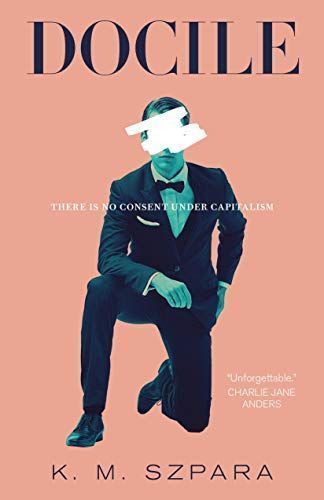
Docile
There is no consent under capitalism Docile is a science fiction parable about love and sex, wealth and debt, abuse and power, a challenging tour de force that at turns seduces and startles. To be a Docile is to be kept, body and soul, for the uses of the owner of your contract. To be a Docile is to forget, to disappear, to hide inside your body from the horrors of your service. To be a Docile is to sell yourself to pay your parents' debts and buy your children's future. Elisha Wilder’s family has been ruined by debt, handed down to them from previous generations. His mother never recovered from the Dociline she took during her term as a Docile, so when Elisha decides to try and erase the family’s debt himself, he swears he will never take the drug that took his mother from him. Too bad his contract has been purchased by Alexander Bishop III, whose ultra-rich family is the brains (and money) behind Dociline and the entire Office of Debt Resolution. When Elisha refuses Dociline, Alex refuses to believe that his family’s crowning achievement could have any negative side effects—and is determined to turn Elisha into the perfect Docile without it.
Reviews
Lindsay@schnurln
Becky A@allreb
Katheryn Sowers @kat3003
Latitude Tamarind@geographreads
Sheena@yoshina
Fraser Simons@frasersimons
Sabetha Danes@caffeinatedbibliotherapy
Floofyflower@jusalilfloof
Sahi K@sahibooknerd
Juliette Raven @thereadingcrow
Kayla Smith@kayla404
Ben Nathan@benreadssff
Sarah Williams@thehireader
Cristina Cicivelli @areaderamongthestars
isabella@bellawoodhouse
g.@georgias
Rowan Hitchcock@rowanhitchcock
Helena Wittlief@helenaj
Laura@lauragh
Ashley Janssen@aninterestingidea
Callisone Dozier@bright_night
isabella t mejias@icelandbella
sydney @godsgrave
Hanna@oakfairy